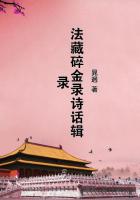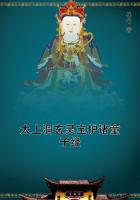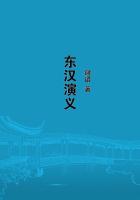The most striking figure in it was doubtless Thomas Cranmer, Archbishop of Canterbury, although he does not represent the English Reformation in all its phases. He was neither so prominent nor so great a man as Luther or Calvin, or even Knox. But, taking him all in all, he was the most illustrious of the English reformers; and he, more than any other man, gave direction to the spirit of reform, which had been quietly working ever since the time of Wyclif, especially among the humbler classes.
The English Reformation--the way to which had been long preparing--began in the reign of Henry VIII.; and this unscrupulous and tyrannical monarch, without being a religious man, gave the first great impulse to an outbreak the remote consequences of which he did not anticipate, and with which he had no sympathy. He rebelled against the authority of the Pope, without abjuring the Roman Catholic religion, either as to dogmas or forms. In fact, the first great step towards reform was made, not by Cranmer, but by Thomas Cromwell, Earl of Essex, as the prime minister of Henry VIII.,--a man of whom we really know the least of all the very great statesmen of English history. It was he who demolished the monasteries, and made war on the whole monastic system, and undermined the papal power in England, and swept away many of the most glaring of those abuses which disgraced the Papal Empire.
Armed with the powers which Wolsey had wielded, he directed them into a totally different channel; so far as the religious welfare of the nation is considered, although in his principles of government he was as absolute as Richelieu. Like the great French statesman, he exalted the throne; but, unlike him, he promoted the personal reign of the sovereign he served with remarkable ability and devotion.
Thomas Cromwell, the prime minister of Henry VIII., after the fall of Wolsey, was born in humble ranks, and was in early life a common soldier in the wars of Italy, then a clerk in a mercantile house in Antwerp, then a wool merchant in Middleborough, then a member of Parliament, and was employed by Wolsey in suppressing some of the smaller monasteries. His fidelity to his patron Wolsey, at the time of that great cardinal's fall, attracted the special notice of the King, who made him royal secretary in the House of Commons. He made his fortune by advising Henry to declare himself Head of the English Church, when he was entangled in the difficulties growing out of the divorce of Catharine. This advice was given with the patriotic view of ****** the royal authority superior to that of the Pope in Church patronage, and of ****** England independent of Rome.
The great scandal of the times was the immoral lives of the clergy, especially of the monks, and the immunities they enjoyed. They were a hindrance to the royal authority, and weakened the resources of the country by the excessive drain of gold and silver sent to Rome to replenish the papal treasury. Cromwell would make the clergy dependent on the King and not on the Pope for their investitures and promotions; and he abominated the idle and vagabond lives of the monks, who had degenerated in England, perhaps more than in any other country in Europe, in consequence of the great wealth of their monasteries. He was able to render his master and the kingdom a great service, from the powers lavished upon him. He presided at convocations as the King's vicegerent;controlled the House of Commons, and was inquisitor-general of the monasteries; he was foreign and home secretary, vicar-general and president of the star-chamber or privy-council. The proud Nevilles, the powerful Percies, and the noble Courtenays all bowed before this plebeian son of a mechanic, who had arisen by force of genius and lucky accidents,--too wise to build a palace like Hampton Court, but not ecclesiastical enough in his sympathies to found a college like Christ's Church as Wolsey did. He was a man ****** in his tastes, and hard-working like Colbert,--the great finance minister of France under Louis XIV., whom he resembled in his habits and policy.
His great task, as well as his great public service, was the visitation and suppression of monasteries. He perceived that they had fulfilled their mission; that they were no longer needed; that they had become corrupt, and too corrupt to be reformed; that they were no longer abodes of piety, or beehives of industry, or nurseries of art, or retreats of learning; that their wealth was squandered; that they upheld the arm of a foreign power; that they shielded offenders against the laws; that they encouraged vagrancy and extortion; that, in short, they were dangerous to the realm.
The monks and friars opposed the new learning now extending from Italy to France, to Germany, and to England. Colet came back from Italy, not to teach Platonic mysticism, but to unlock the Scriptures in the original,--the centre of a group of scholars at Oxford, of whom Erasmus and Thomas More stood in the foremost rank.
Before the close of the fifteenth century, it is said that ten thousand editions of various books had been printed in different parts of Europe. All the Latin authors, and some of the Greek, were accessible to students. Tunstall and Latimer were sent to Padua to complete their studies. Fox, bishop of Winchester, established a Greek professorship at Oxford. It was an age of enthusiasm for reviving literature,--which, however, received in Germany, through the influence chiefly of Luther, a different direction from what it received in Italy, and which extended from Germany to England. But to this awakened spirit the monks presented obstacles and discouragements. They had no sympathy with progress; they belonged to the Dark Ages; they were hostile to the circulation of the Scriptures; they were pedlers of indulgences and relics; impostors, frauds, vagabonds, gluttons, worldly, sensual, and avaricious.















